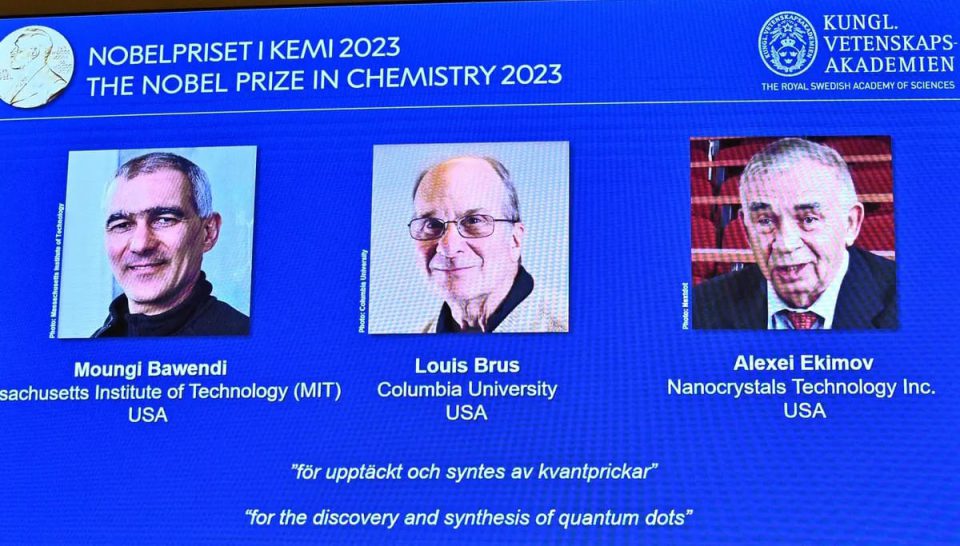In 2023, two American scientists and a Russian scientist were awarded the Nobel prize in the field of Chemistry for discovering and synthesizing quantum dots. This achievement has played a vital role in the nanotechnology revolution.
Moungi Bawendi, Louis Brus and Alexey Ekimov equally received the 2023 Nobel Prize in Chemistry for their discovery of tiny materials called nano-materials and also for finding the ways to use them. These findings have opened the door for many uses in everyday gadgets, biochemistry and healthcare.
Moungi Bawendi is an American chemist with French and Tunisian roots, working at MIT. Louis Brus is associated with Columbia University and Alexey Ekimov serves as the chief scientist at Nanocrystals Technology, a company based in New York.
On Wednesday morning, the announcement of the Nobel prize in chemistry was unfortunately leaked to a Swedish newspaper through an email before the official news was released which was embarrassing for the academy. Johan Åqvist, the chairperson of the academy’s Nobel Committee explained that the decision was not yet made at the time when email was sent and other scientists might still have been considered. The final decision was made only in the morning meeting of the academy and this process remains confidential until it becomes public 50 years later as per Nobel tradition. He stated that the leak did not affect the actual Nobel prize recipients.
The Nobel recipients were not aware about the drama around the leak. Upon being informed by the academy Bawendi expressed his surprise and honor and he even acknowledged the efforts of others who had contributed to the discovery. Ekimov was contacted through phone during his trip to Mexico whereas Brus was not able to make it at the time of the official announcement.
Ekimov discovered these tiny materials while working with colored glass in 1981 and he found that heating glass with copper chloride changed its color as it altered the size of tiny copper chloride crystals inside the glass. However this discovery wasn’t widely known due to the iron curtain. In the later years, Louis Brus at the Bell laboratories in the US, noticed that tiny cadmium sulfide particles changed their optical properties over time and then he realized that it happened because of the growing particles which was a size-dependent quantum effect.
In 1993, Moungi Bawendi improved the way quantum dots are made which resulted in nearly perfect particles with controllable sizes. This made Quantum dots more beneficial in various medical and commercial applications.
The Nobel committee defended its decision in awarding a Russian scientist, observing that they choose winners based on their significant discoveries and contributions nevertheless of their nationality in line with Alfred Nobel’s will.
Professor Gill Reid from the Royal Society of Chemistry appreciated the recognition of quantum dots research, acknowledging their potential for improving technology like solar panels and TV screens. She also emphasized that diverse perspectives and team efforts in different countries are important in scientific advancements and collaborative achievements.

